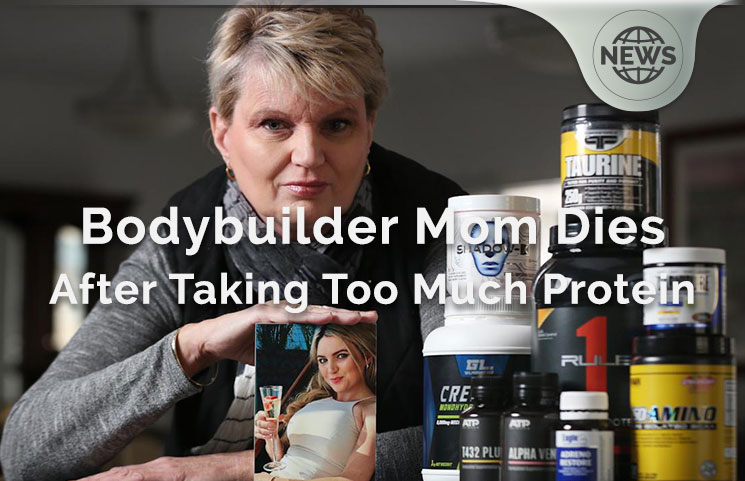Meegan Hefford, a mother of two and bodybuilder, reportedly died after consuming too many protein shakes, supplements, and protein-rich foods.
Hefford was found nonresponsive in her West Australia apartment and was quickly transported to a nearby hospital, where she was declared brain-dead. Two days later, she passed away.
Hefford has been an active bodybuilding competitor since 2014. The 25-year old mom and paramedic trainee had been increasing her gym routine in the weeks leading up to her death. Reports show that she had placed herself on a restricted diet to prepare for a bodybuilding competition in September.
Before you put away the protein powder, consider this: doctors claim Hefford had been living with a rare disorder called urea cycle disorder. It prevents her body from breaking down protein. The disorder can lead to fatal levels of ammonia in the bloodstream and excessive fluid in the brain.
Perth Now officially reported that her final cause of death was “intake of bodybuilding supplements” in addition to the undiagnosed illness.
Hefford’s mom, Michelle White, had warned her daughter in the months leading up to her death. During this time, Hefford was going to the gym twice a day for exercise. Hefford often complained about lethargy and fatigue.
“I said to her, ‘I think you’re doing too much at the gym, calm down, slow it down,’” White said.
White was unaware of her daughter’s use of protein supplements. However, when she visited Hefford’s home after her death, she found 6 containers of protein shakes in the kitchen. The shakes were purchased online – which is a marketplace where White says there aren’t enough restrictions:
“I know there are people other than Meegan who have ended up in hospital because they’ve overloaded on supplements. The sale of these products needs to be more regulated.”
Are Protein Supplements Dangerous?
The mainstream media is jumping all over this story. The NYPost ran an incendiary headline titled, “Bodybuilder mom dies from too much protein before competition.”
Obviously, those stories get clicks – but they also remove a crucial piece of information from the equation. Hefford had an undiagnosed illness that prevented her body from breaking down protein. It seems unlikely that the same situation would have occurred if Hefford’s illness had been diagnosed, or if she had been aware of her body’s restrictions on protein usage.
It’s also unclear how much protein Meegan was taking. She could have been within the recommended daily limits, or she could have been taking an excessive daily dosage.
Ultimately, protein supplements continue to be safe according to every regulatory body in the world – assuming you use them in the recommended dosages and they have clear, labeled ingredients. Meegan Hefford’s story is tragic and unfortunate – but the blame appears to lie with her urea cycle disorder instead of protein supplements.









